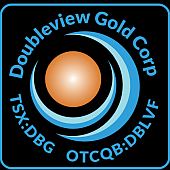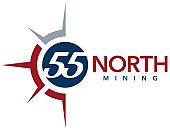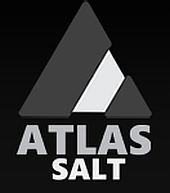 Red Canyon reviews 2023, talks 2024 plans
Red Canyon reviews 2023, talks 2024 plans
2024-01-22 10:17 ET – News Release
Mr. Wendell Zerb reports
RED CANYON PROVIDES CORPORATE OVERVIEW AND EXPLORATION PLANS FOR 2024
Red Canyon Resources Ltd. has provided a corporate overview outlining summary results from last year’s activities and exploration plans for 2024. The company is focused on impactful, value-add exploration to make discoveries of copper and copper-gold deposits in established mineral belts in North America.
Company highlights:
- The company controls a portfolio of eight 100-per-cent-owned, internally generated copper and copper-gold projects, four of which are advanced and drill ready.
- The company’s Peak copper-gold project in central British Columbia has multiple targets highlighted by magnetic features, coincident IP (induced polarization) and elevated copper geochemistry. An initial 1,000-metre drill program to test first-priority targets, including the Peak Central area, is planned for the first half of 2024.
- The Scraper Springs copper project in northern Nevada hosts a four-kilometre by four km alteration footprint comparable in scope with some of the world’s largest copper deposits. A deep-penetrating IP geophysical line completed by Red Canyon has identified a large chargeable drill target. The Hercules discovery north of Scraper Springs in Idaho has renewed interest in copper porphyry exploration in the area.
- In the fourth quarter of 2023, Red Canyon completed four first-pass diamond drill holes at its Ping South copper project in British Columbia, testing one of three priority copper-gold targets. Drill hole RCPG-23-003, collared on the edge of an interpreted intrusive related magnetic feature, intercepted a sericite/pyrite-altered, quartz-rich porphyry intrusion from the beginning of bedrock to the end of the hole. Intersecting a new porphyry intrusion in this glacial till covered area of the Quesnellia Island Arc terrane is considered technically positive.
- The company continues to advance a detailed porphyry alteration vectoring study at its high-profile Kendal copper project in British Columbia. In the fourth quarter of 2023, the company collected over 200 rock outcrop specimens throughout the Kendal area. Using four-acid digestion, trace-element geochemistry and hyperspectral analysis, the company expects to refine and model the porphyry mineralizing potential within the project prior to an anticipated initial drill program in 2024.
Wendell Zerb, the Chairman and CEO of the Company, states: “Red Canyon has rapidly advanced four of its eight 100% owned projects to the drill stage. Our Peak Project is set to be drill tested first in the second quarter, followed potentially by programs at Scraper Springs and Kendal. Each of these projects has been advanced to the drilling stage by completing systematic, advanced, and detailed geological, geophysical, and geochemical programs. We are at the stage now where shareholders have exposure to potentially the next value add copper-gold discovery”.
Project Overview:
The Company holds a portfolio of eight 100% owned projects in British Columbia, Nevada, and Utah. Initial advanced exploration efforts have focused on the Peak and Ping projects in central British Columbia. Red Canyon conducted a first pass diamond drill program at Ping South in the fourth quarter of 2023 and plans to conduct an initial 1,000 m drill program at Peak in the second quarter of 2024. High priority projects at Scraper Springs in northeast Nevada and Kendal in west central British Columbia are expected to advance to an initial drill stage in early to mid-2024.
The Company continues to review new early stage to advanced stage mineral projects both within the Western United States and British Columbia.
Peak Project: The Peak property is located in the Cariboo region of south-central British Columbia, approximately 30 km NE of the City of Williams Lake. Peak is a large, 6,718-hectare, strategic land position situated in a copper – gold district with active large scale mining operations and excellent infrastructure. The Project is located approximately 28 km SW of the Mount Polley copper-gold mine and 20 km SE of the Gibraltar copper-molybdenum mine. A series of complex magnetic highs spanning over approximately 15 km of interpreted Quesnellia Island Arc Terrane have been identified using magnetic inversion modeling and are considered by the Company to be prospective for copper-gold. Project wide soil geochemistry has outlined anomalous areas of copper associated with magnetic features that may reflect the presence of porphyry-type intrusions in the bedrock. An induced polarization (IP) geophysical survey, which focused on coincident magnetic features with elevated copper in soils, was completed by the Company in 2023. Four of the seven targets tested show IP chargeability highs coincident with elevated copper geochemistry and interpreted intrusion related magnetic features.
The Company’s primary drill-ready target is at Peak Central, which represents an area of complex magnetic highs and lows associated with altered and mineralized porphyritic rocks. A 2011 IP survey at Peak Central outlined a large chargeability zone west of outcropping copper bearing porphyritic rocks, which has not been drill tested.
The Company is adequately funded and plans for an initial 2024 second quarter 1,000 m drill program to test the Peak Central high chargeability zone, an adjacent deep highly resistive zone, as well as several Peak North targets including 6S (see News Release November 7, 2023).
Scraper Springs Project: Scraper Springs is in northern Nevada approximately 125 km from the cities of Winnemucca and Elko. The Project is 100% owned, subject to a 2% net smelter return royalty and consists of 190 unpatented mining claims, spanning 1,589 hectares. The approximate 4 x 4 km alteration footprint surrounding the Scraper Springs target is comparable in scope to some of the world’s largest copper deposits.
Previous operators at Scraper Springs mostly targeted shallow, high-grade gold systems or Carlin-related gold systems. A reinterpretation of the alteration and geology at the Project by Red Canyon and third-party consultants suggests high-temperature, low-pH clays and Eocene-aged intrusions at Scraper Springs could be associated with a deeper, large-scale copper system. In 2022, Red Canyon completed a deep IP survey at the Project, which outlined a significant, chargeable zone not previously drill tested. One historical drill hole approximately 1.5 km east of this new chargeability target intersected strong propylitic alteration and ended in anomalous copper mineralization with values up to 0.17% copper.
The Company views Scraper Springs as an important, high-profile copper project with excellent discovery potential. Red Canyon is currently reviewing options regarding conducting deep penetrating MT geophysics, or extending IP geophysical coverage prior to initial drill testing.
Ping South Project: The Ping South property comprises four contiguous mineral claims covering 3,821 hectares in north-central British Columbia, located approximately 50 km NW of the City of Prince George. Ping South lies within the Quesnellia Island Arc Terrane which hosts numerous deposits of alkalic porphyry gold-copper style mineralization, including Mount Polley and Mt Milligan. Access to the property is excellent via a well-maintained logging road network. Main forest service roads run to the north and south of the Ping South claims.
In the fourth quarter of 2023, the Company conducted a first pass diamond drill program, completing four diamond drill holes totalling 665 m, and testing one of three interpreted alkalic copper-gold porphyry targets identified using a combination of Mobile Metal Ion (MMI) geochemistry, airborne magnetics and induced polarization geophysics . Two of the three targets were not tested due to a lack of available surface water for drilling. These targets remain untested and considered high priority.
Drill hole RCPG-23-003 (“003”) was collared on the edge of an interpreted intrusion-related magnetic feature (Figure 5). 003 intersected 85 m of a newly recognized, coarse-grained, quartz-rich porphyritic intrusion from the base of overlying till cover to the end of the hole (Figure 6). The intrusion is highly deformed, foliated, and strongly lineated with local zones of more intense shearing and early deformed quartz veining. Broad zones (tens of metres) have been impacted by post-deformation sericite and pyrite alteration with associated quartz veining, indicating significant hydrothermal fluid flow. Geology and alteration encountered in 003 may suggest that it is on the outer margins of a potentially mineralized system. Assay results from 003 returned weakly anomalous Cu values moderately increasing down hole. By intersecting a new porphyry intrusion in this first pass program, the Company has confirmed the validity of its targeting process in this till covered area of Quesnellia Island Arc Terrane. The interpreted centre of the magnetic high associated with 003 is approximately 300 m to the ESE of the 003 collar location.
Drill holes RCPG-23-001, 004 and 005 all intersected an extensive, newly-discovered package of carbonaceous and calcareous marine sediments with quartz and quartz-carbonate veining. RCPG-23-004 and 005 rocks have been tightly folded and strongly deformed to form phyllite with graphitic horizons, carbonate veins and pyrite porphyroblasts . Quartz vein dominated zones were intersected in structurally-focused deformation zones with associated chlorite, iron carbonate and sericite alteration. These quartz veins and related rocks appear similar to gold-bearing sediment-hosted orogenic quartz veins that characterize many gold districts, including British Columbia’s Barkerville district. A two metre wide quartz-feldspar porphyry felsic dyke in RCPG-23-004 cuts the deformed sediments and is pervasively sericite-altered with pyrite and at least two phases of quartz veins. Assay results from 001, 004, and 005 returned weakly anomalous zones with elevated Au, Ag and As. The graphitic horizons associated with zones of 1-3% pyrite porphyroblasts are interpreted to be the source of the highly chargeable IP feature targeted in this program.
The Ping South area is located within an elevated magnetic portion of a 25 km long northwest-trending positive magnetic feature. The feature is also partly correlative with the western margin of a 90 x 15 km north-trending gravity high that is co-spatial with the western margin of a conductivity (VTEM) low. These coincident geophysical features share comparable characteristics to regional geophysical responses from several British Columbia copper deposits.
Kendal Project: Kendal is 100% owned and comprises five mineral claims totalling 2,738 hectares located in west-central British Columbia, approximately 25 km northeast of the City of Terrace.
A key focus of the Kendal project is the 2.5 x 1.5 km zone of hydrothermal alteration, manifest as phyllic alteration associated with an interpreted mineralized porphyry intrusion. In the fourth quarter of 2023, the Company initiated a porphyry alteration vectoring study to better understand the porphyry potential within this region. Approximately 200 rock specimens were sampled within the area of interest (Figure 7), and subsequently sawn, described and photographed.
The entire sample suite has been analysed for trace element geochemistry using four-acid digestion, which ensures that key minerals are dissolved. High-quality mass spectrometry is utilized to ensure high precision at low detection limits. This analytical technique allows for the recognition of subtle trends in the data that indicate hotter and more proximal fluid sources, or more simply, the identification of the core of the mineralizing system.
In addition to geochemical analyses, alteration mineralogy of the sample suite was determined using SWIR (short wavelength infrared) spectrometry to indicate trends in mineralogy, mineral abundances, mineral chemistry and crystallinity, to identify locales with significant variations in temperature, pH and fluid flux.
It is anticipated that individual data layers or combinations of data layers will indicate zones with hotter fluids, greater fluid flux and upflow zones that would be key localities for targeted follow-up exploration.
The Company interprets a large 2.5 x 1.5 km zone of highly-altered surface rocks to represent the phyllic (Quartz-Sericite-Pyrite) alteration within a copper porphyry system. Previous mapping and sampling also identified propyllitically altered porphyritic rock and breccia zones with widespread anomalous copper geochemical values. The Company interprets that the current level of erosion at Kendal is likely above a more prospective potassic alteration zone, suggesting that the main part of the copper system is preserved and may be open laterally and at depth.
The 2023 field program also included a project wide 213 line kilometre airborne magnetic and radiometric survey. Additional modeling of the magnetic data including magnetic inversion work is planned for the first quarter of 2024. The Company anticipates that these combined work programs currently underway at Kendal will optimize the initial drill program, which could begin as early as the third quarter of 2024. This project has never been drill tested.
Corporate Strategy:
Red Canyon is focused on exploring for copper and copper-gold related mineral systems within mining friendly jurisdictions in North America, with a particular focus on British Columbia and the Western United States. The Company is specifically targeting new or underexplored areas within established, premier copper districts.
The Red Canyon team has sourced and advanced its portfolio of 100% owned projects over the last three years using leading-edge geoscience to generate new exploration concepts. The Company is largely focused on exploring for and acquiring new projects by staking claims on open ground; a strategy which has enabled Red Canyon to build a portfolio of 100% owned properties, without complicated option or earn-in encumbrances.
Red Canyon intends to drill test several priority projects in 2024 with a goal of bringing targets to a decision point as quickly and cost-effectively as possible. The Company also intends to advance several additional projects to a drill stage by executing geologic, geochemical, and geophysical programs. Red Canyon is executing a corporate strategy of seeking out strategic alliances and will evaluate opportunities to joint venture, option or sell projects to qualified partners to maximize its exposure to exploration success.
Additional information on the Peak and Scraper Springs projects can be found in the NI 43-101 Technical Reports dated May 1, 2023 and September 26, 2023 respectively, as filed on SEDAR+ at www.sedarplus.c a .
Additional information on the Company’s other projects can be found on the Company’s website www.redcanyonresources.com . Further projects are in development and details will be disclosed as information comes available.
About Red Canyon Resources:
Red Canyon Resources Ltd. (CSE: REDC) is a technically-driven, discovery-focused mineral exploration company focused on exploring North America’s top copper jurisdictions. The Company’s core goal is to make impactful copper discoveries to benefit all stakeholders and aid in the green energy transition. Red Canyon has a portfolio of 100% owned copper and copper-gold porphyry exploration projects. The Company’s technical team consists of experienced geoscientists with diverse capital market, junior and major mining company backgrounds, and a track record of success.
Red Canyon is part of the NewQuest Capital Group which is a discovery-driven investment enterprise that builds value through the incubation and financing of mineral projects and companies.
Qualified Person and Sampling Quality Control:
The scientific and technical information contained in this news release has been reviewed and approved by Christopher J. Wild, P. Eng, Red Canyon’s Exploration Manager and a “Qualified Person” (“QP”) as defined in National Instrument 43-101 – Standards of Disclosure for Mineral Projects.
Drilling at Ping South was conducted using a Zinex A5 core drill rig. Initial drilling used HQ sized core to advance through a series of unconsolidated till and lacustrine derived sediments. In addition, HQ advanced through up to 60m of oxidized bedrock before transitioning to diamond drilling using NQ sized core. Core was initially logged and photograph at the Company’s temporary field office before being transported to a leased core facility where it was geotechnic’d, prepped and then cut to the Company’s specified sample intervals. Half core samples are placed in bags with the remaining half stored in core boxes. Samples are dispatched to ALS Laboratories an accredited analytical laboratory meeting ISO/IEC 17025:2005 and ISO 9001:2015. Samples are prepared by crushing and grinding via ALS methods CRU-21 and PUL-32 respectively. The pulps are then assayed for 48 elements via ALS method ME-MS61 using a 25g sample. Gold is assayed by fire assay using ALS method Au-AA23 using a 30g sample charge and AAS finish. Laboratory standards and QA-QC are monitored by the Company.
We seek Safe Harbor.
https://www.redcanyonresources.com/





























